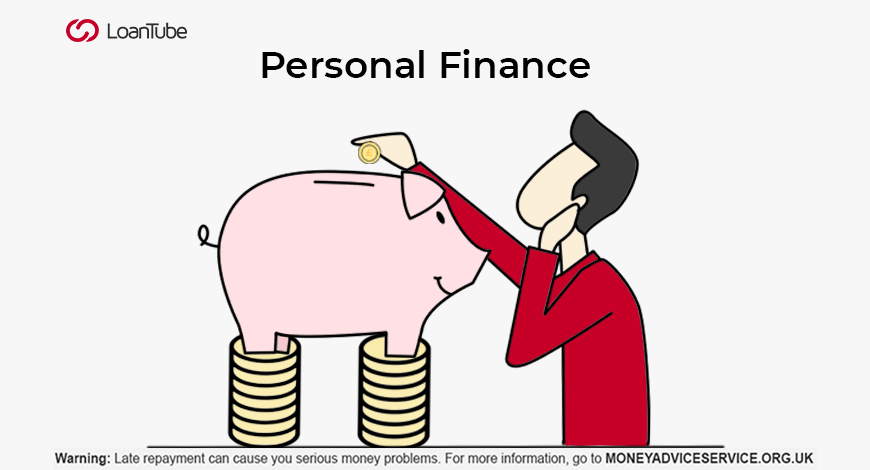The revolution in technology and financial regulations over the last 10 years has had a great influence over the Personal Finance market. These changes allow people to do much more with their money than just saving. With knowledge about Personal Finance and the right tools, you can do a lot more with your money.
In this article, we’re targeting the most common questions about Personal Finance, so that you can make a better financial decision.
Maximise your options: Compare and apply for loans below with LoanTube
Apply Filters
What is personal finance?
Personal finance refers to the practice of managing your money efficiently. This extensive field comprises banking, insurance, responsible tax payment, budgeting, investments, financial goals, mortgage, credit management, and retirement planning.
Your personal finance is largely impacted by your income, expenditure, living requirements as well as financial goals. To have an effective personal finance strategy is to be able to successfully juggle all these needs, within your financial constraints.
However, to maximize the long term profits of your income, savings, and investments, it is imperative to have financial literacy. Fundamental knowledge of financial management can help make better-informed decisions that benefit you in the long run.
What are the key principals of Personal Finance?
- Save: Put a generous amount of income in your savings pot. This fund might eventually come in handy during an emergency
- Prioritize: Be wise while deciding what you’re putting your money on. There are several ways to maximize the benefit of your money, so it is important to be prudent while prioritizing your expenses.
- Restraint: Certain temptations are difficult to avoid, which gulp down a lot of your money. A good start is to refrain from major unnecessary expenditures and putting that money to better use.
- Invest: Make your money do the work for you. Even if you’re a risk-averting person, you may start with controlled investment, supervised by your financial advisor.
- Learn: Before making any financial decision, it is important that you sit back and educate yourself about it. Strengthen your fundamentals of financial management to make wiser decisions.
What types of personal finance options are there?
Personal finance encompasses several financial services and financial benchmarks, such as:
- Banking: Banking includes maintaining a functioning bank account, facilitating transactions, and responsible utilization of credit, either through credit card or overdraft.
- Investments: Allocating your money to multiple sources to generate profits, to build long-term wealth.
- Saving: Setting aside a part of your income towards a fund that you can use for emergencies.
- Budgeting: Creating a budget to analyse your expenses and allocating a fixed amount of money to each expense.
- Mortgage: Mortgage is a financial product that allows you to purchase the property. Now, this property acts as collateral until you repay the mortgage loan to the lender.
- Retirement fund / Pension: Retirement fund is an investment option that allows people to save a certain portion of their income for their retirement.
What are the benefits of personal finance?
Well planned personal finance will not only help you lead a hassle-free life today but also reap the benefits of stocking up in the better future. Plan your finances wisely for the sake of a secure future. We have shed some light upon some benefits of having a well-versed personal finance strategy:
- Helps you evaluate your financial condition and standing
- Helps you in devising investment plans and maximising profits
- Helps you in staying focussed on your financial goals
- Helps you in organizing your savings and expenditures
- Helps you keep an overall tab on your money
- Helps you in building a better future
How to manage your finances efficiently?
When it comes to financial planning, the sooner you start, the more you save. Although, you’re never too late to become financially aware. A new day will bring a new chance for you to build a robust strategy and set practical financial goals for yourself. Following are a few ways to manage your personal finance in a more systematic form:
- Understand your current financial situation: Before you start planning your financial strategy, take a look at where you currently stand. Assess your ongoing financial situation and make decisions based on that.
- Set personal priorities and financial goals: Prioritise your expenses and set practical financial goals that are easy to fulfill.
- Create and stick to a budget: Create a budget to refrain from superfluous spending and make it a point to abide by it.
- Establish an emergency fund: Build an emergency fund to cope with an unprecedented crisis that can potentially agitate your finances.
- Save for retirement: Invest some money towards a gracious retirement, to secure a better future.
- Pay off debt: Ensure that you repay your ongoing debt. Pay your installments in full and on time to maintain your credit rating.
- Schedule regular progress reports: Evaluate your financial situation throughout regular intervals to reinforce better measures of planning.
What is the best software to manage personal finance?
Personal finance software and applications can help you get a better grip over the process of financial planning. These apps allow you to manage your money more efficiently and provide you with options that make your long-term financial goals seem more achievable. Following is a list of some of the most sought-after financial management apps that help with personal finances:
- Quicken: Best Overall
- Mint: Best for Budgeting
- YNAB: Best for Habit Building
- Mvelopes: Best for Zero-Based Budgeting (Zero-Based Budgeting is a budgeting method where every expense must be justified and approved for each new budgeting period.)
- TurboTax: Best for Taxes
- Personal Capital: Best for Investment Advice
- Tiller Money: Best for Spreadsheet Management
Disclaimer: The above app companies are unsponsored.


